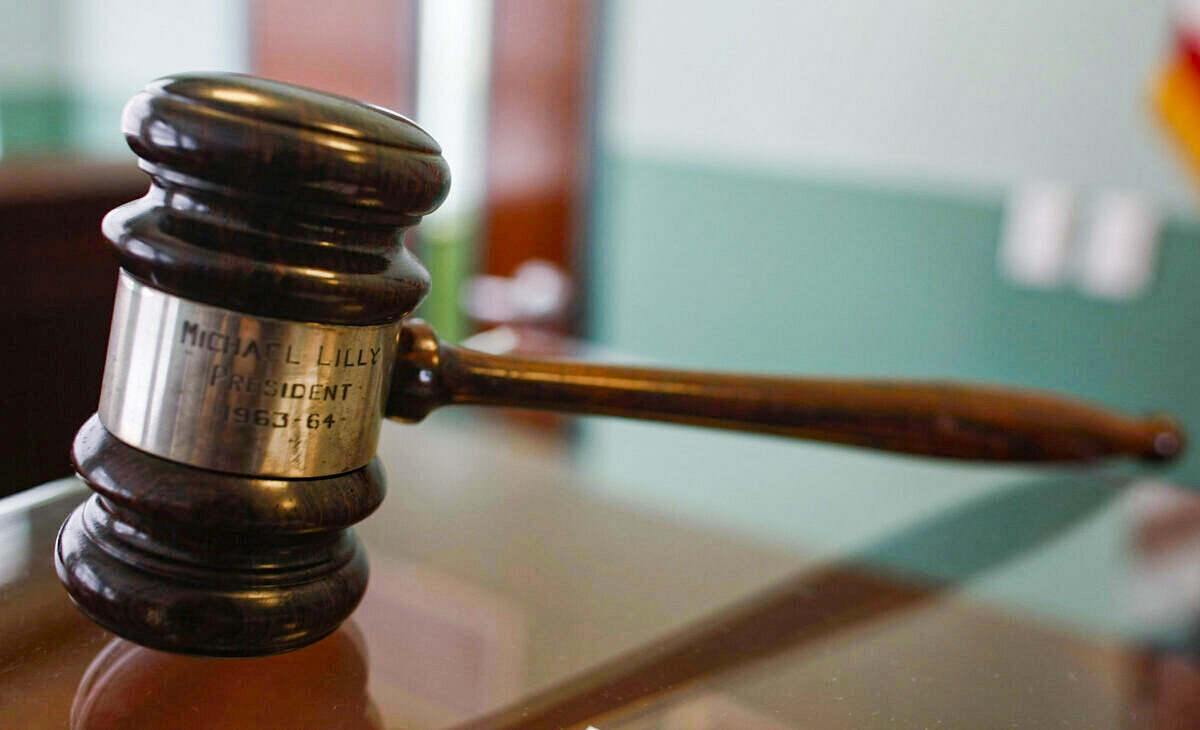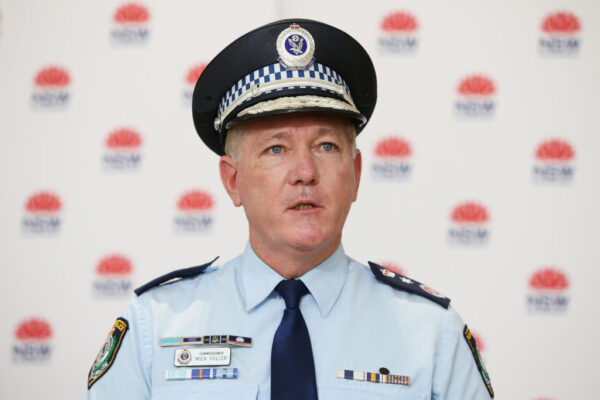Mobile Phone Records Swept Under the Rug in Sexual Assault Trials
Commentary When it comes to teasing out the murky truth in sexual consent cases, the mobile phone is a key source of evidence offering a lifeline that often serves to exonerate accused men. That’s why phone evidence has become such a hot-button issue, with police and prosecutors now routinely withholding or deleting phone evidence that could be used to disprove the complainant’s claims. The public push for more rape convictions means impediments like exculpatory evidence are conveniently overlooked or swept aside. In Australia, this issue usually emerges only in the stories of individual men seeking justice in our courts, but in the UK, the controversy has been playing out in a very public arena. Witness the huge scandal five years ago when a series of high-profile British rape cases fell apart because it was discovered the police and prosecutors had withheld social media evidence that could have exonerated the accused men. The best known was Liam Allan, where the disclosure of 40,000 text messages revealed his accuser had pestered him for sex. Allan avoided a likely 10-year prison sentence only because the prosecution barrister after the trial had actually commenced, insisted the police hand over the phone evidence to the defence lawyers. This was one of many cases that collapsed due to the very late disclosure of mobile phone evidence that challenged the complainant’s claims. With one man, Danny Kay, the evidence which exonerated him came to light only after he had served four years of his sentence. A file photo of a judge’s gavel. (Joe Raedle/Getty Images) Presumption of Guilt As Dr Rick Bradford, a leading expert on men’s issues, explains in his excellent blog, The Empathy Gap, the press interest in these disclosure failures ultimately led to a review by the Justice Select Committee, which concluded prosecutors underestimate the number of cases which fell apart due to disclosure errors “by around 90 percent.” The Select Committee had very clear advice for the prosecution services, namely: “Prosecutors must always act in the interests of justice and not solely for the purpose of obtaining a conviction. “It is fundamentally important that all police officers recognise both that they are searching for the truth and that they have core disclosure duties which are central to the criminal justice process.” The key issue in the battle over disclosure is privacy, with the feminists arguing that it violates a complainant’s privacy to demand her phone correspondence. The Select Committee stated that this factor was trumped by other considerations. “The law is clear in that the right to a fair trial is an absolute right which cannot be violated to protect the right to privacy,” they said, putting the onus on the prosecutors to actively address disclosure issues. Along came a new DPP (Director of Public Prosecutions), Max Hill, who made it clear whose side he was on in his first public speech. “Rape complainants must have their personal privacy, including mobile phone records, protected,” he said. He showed the feminists that he was their man, and the sound work of the Select Committee went down the gurgler. According to Bradford, the disclosure issue then dropped from the public agenda, and police and prosecutors are now to working together to achieve more “successful prosecutions,” which inevitably means suppressing contradictory evidence. Last year, the prominent Sydney silk, Margaret Cunneen, a former Crown prosecutor, speaking at the Rule of Law Education Centre, revealed that Australian police are now required to refer to complainants as “victims” and treat them accordingly, pushing all cases through to trial. “There’s not much more investigation that goes on. There’s a zeal to get to the end and convict the charged person,” she said. Former New South Wales (NSW) Police Commissioner Mick Fuller reinforced this point when he said: “As police, our primary role is to support victims who courageously come forward to police to report sexual assault.” Nothing about the right to a fair trial. No mention of the search for the truth. NSW Police Commissioner Mick Fuller speaks during a COVID-19 update and press conference in Sydney, Australia, on July 30, 2021. (Lisa Maree Williams/Pool/Getty Images) Playing Out Here Down Under In our courts, the consequences are clear. Just before Christmas, a jury acquitted a young man in a retrial of a sexual assault case that had cost a Sydney family six years of their lives and over $650,000 (US$455,000) in legal fees. The family is now suing the NSW police for gross negligence over withholding phone evidence that ultimately contributed to their son’s acquittal. It all started in 2016 when their son—I’ll call him “Michael”—was at a boozy party on NSW’s Central Coast. Most of the young people present were completely wasted after a long day of drinking and drug-taking. Suddenly a girl jumped up from the couch where she had been spooning with Michael

Commentary
When it comes to teasing out the murky truth in sexual consent cases, the mobile phone is a key source of evidence offering a lifeline that often serves to exonerate accused men.
That’s why phone evidence has become such a hot-button issue, with police and prosecutors now routinely withholding or deleting phone evidence that could be used to disprove the complainant’s claims.
The public push for more rape convictions means impediments like exculpatory evidence are conveniently overlooked or swept aside.
In Australia, this issue usually emerges only in the stories of individual men seeking justice in our courts, but in the UK, the controversy has been playing out in a very public arena.
Witness the huge scandal five years ago when a series of high-profile British rape cases fell apart because it was discovered the police and prosecutors had withheld social media evidence that could have exonerated the accused men.
The best known was Liam Allan, where the disclosure of 40,000 text messages revealed his accuser had pestered him for sex. Allan avoided a likely 10-year prison sentence only because the prosecution barrister after the trial had actually commenced, insisted the police hand over the phone evidence to the defence lawyers.
This was one of many cases that collapsed due to the very late disclosure of mobile phone evidence that challenged the complainant’s claims.
With one man, Danny Kay, the evidence which exonerated him came to light only after he had served four years of his sentence.

Presumption of Guilt
As Dr Rick Bradford, a leading expert on men’s issues, explains in his excellent blog, The Empathy Gap, the press interest in these disclosure failures ultimately led to a review by the Justice Select Committee, which concluded prosecutors underestimate the number of cases which fell apart due to disclosure errors “by around 90 percent.”
The Select Committee had very clear advice for the prosecution services, namely:
“Prosecutors must always act in the interests of justice and not solely for the purpose of obtaining a conviction.
“It is fundamentally important that all police officers recognise both that they are searching for the truth and that they have core disclosure duties which are central to the criminal justice process.”
The key issue in the battle over disclosure is privacy, with the feminists arguing that it violates a complainant’s privacy to demand her phone correspondence.
The Select Committee stated that this factor was trumped by other considerations.
“The law is clear in that the right to a fair trial is an absolute right which cannot be violated to protect the right to privacy,” they said, putting the onus on the prosecutors to actively address disclosure issues.
Along came a new DPP (Director of Public Prosecutions), Max Hill, who made it clear whose side he was on in his first public speech.
“Rape complainants must have their personal privacy, including mobile phone records, protected,” he said.
He showed the feminists that he was their man, and the sound work of the Select Committee went down the gurgler.
According to Bradford, the disclosure issue then dropped from the public agenda, and police and prosecutors are now to working together to achieve more “successful prosecutions,” which inevitably means suppressing contradictory evidence.
Last year, the prominent Sydney silk, Margaret Cunneen, a former Crown prosecutor, speaking at the Rule of Law Education Centre, revealed that Australian police are now required to refer to complainants as “victims” and treat them accordingly, pushing all cases through to trial.
“There’s not much more investigation that goes on. There’s a zeal to get to the end and convict the charged person,” she said.
Former New South Wales (NSW) Police Commissioner Mick Fuller reinforced this point when he said: “As police, our primary role is to support victims who courageously come forward to police to report sexual assault.”
Nothing about the right to a fair trial. No mention of the search for the truth.

Playing Out Here Down Under
In our courts, the consequences are clear. Just before Christmas, a jury acquitted a young man in a retrial of a sexual assault case that had cost a Sydney family six years of their lives and over $650,000 (US$455,000) in legal fees.
The family is now suing the NSW police for gross negligence over withholding phone evidence that ultimately contributed to their son’s acquittal.
It all started in 2016 when their son—I’ll call him “Michael”—was at a boozy party on NSW’s Central Coast. Most of the young people present were completely wasted after a long day of drinking and drug-taking.
Suddenly a girl jumped up from the couch where she had been spooning with Michael and claimed she had woken up to find his fingers in her. She later made a further accusation about him doing a similar thing three years earlier at another party, yet they’d remained good friends in the interim.
Three years later, the case was decided. Michael was found guilty of sexual assault. A sympathetic judge sentenced him to 450 hours of community service, taking into account his history of depression. But this young bloke had become a convicted felon, listed on the sex register and marked for life.
Michael’s father, Colin, decided to appeal, and that’s when things really got interesting. They employed an ex-cop with the skills to investigate Michael’s mobile phone. The police claimed it had been sealed away in the period leading up to the trial, but in fact, it had been tampered with and critical conversations erased.
The scene was set for Margaret Cunneen to make mincemeat of the accuser’s story in the retrial, as she forensically exposed holes in the stories of the accused and her friends.
Michael’s accuser repeatedly claimed he had assaulted her with his left hand until it was revealed that his left hand was incapacitated due to surgery, and then she conveniently switched her claim to the right.
Then there was the size of the couch, which Cunneen proved was unlikely to have fitted the hulking young man and his victim if he assaulted her from behind, as alleged unless he was holding her in place.
Hundreds of social media messages were now available to prove the accuser had pursued Michael, even after the first alleged assault.
The jury made the decision to toss the case out in less than two hours. Once they were presented with the truth at the retrial, the decision was easy.
Michael had a family who had the resources to see justice done. Pity the other falsely accused when our police and prosecutors believe only victims and do their darndest to make sure that is the only story heard.
Views expressed in this article are the opinions of the author and do not necessarily reflect the views of The Epoch Times.












